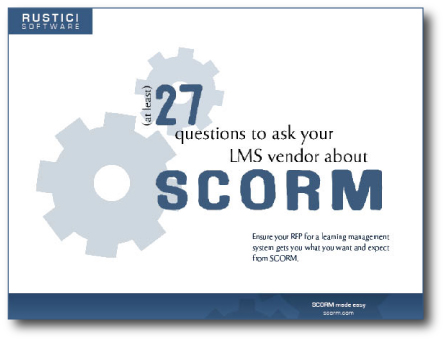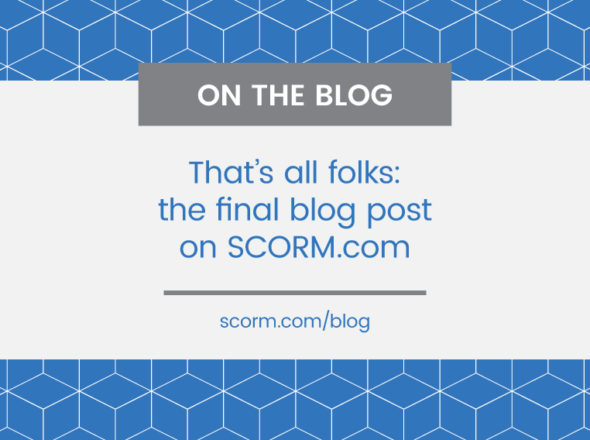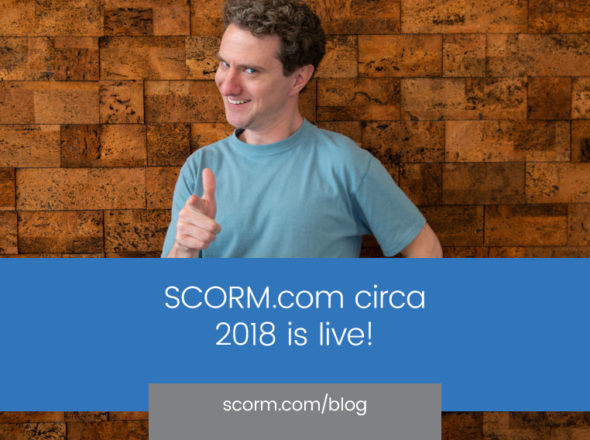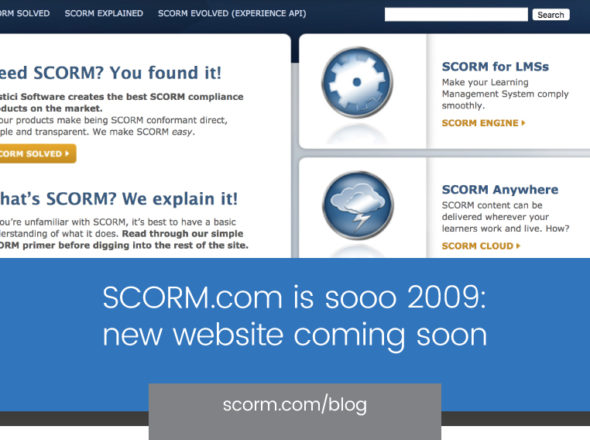 SCORM used to be binary, either you had it or you didn’t. But that’s not right. Let’s face it, in reality there are some good SCORM implementations and some, well, really bad SCORM implementations. Our new e-book will help you decide which is which.
SCORM used to be binary, either you had it or you didn’t. But that’s not right. Let’s face it, in reality there are some good SCORM implementations and some, well, really bad SCORM implementations. Our new e-book will help you decide which is which.
ADL avoided overly specifying exactly how developers should implement SCORM. This was a wise decision. It led to innovation and wide-spread adoption. But when this freedom was abused, it also led to incompatibilities, headaches and it even led some people to proclaim that SCORM sucks. We are, quite frankly, getting a little tired of people blaming the standard instead of holding their vendors accountable.
ADL can’t and shouldn’t recommend specific vendors. Its position is that the market will reward the good and punish the bad. Free markets are great, but they are most effective when coupled with information. For a market to reward the good and punish the bad, its participants need the be able to effectively distinguish between what is good and what is bad. Up until now, there has been very little information to help purchasers distinguish between good SCORM and bad SCORM. That’s where “SCORM for RFPs” comes in.
This new e-book provides at least 27 questions you can ask your LMS vendor about their SCORM implementation. It covers everything from the basics (“Are you actually SCORM certified?”) to the technically advanced (“How is SCORM data exchanged between the client and server?”).
This paper is meant to be a stake in the ground, a starting point to the discussion. It is our opinion of what constitutes a robust SCORM LMS implementation. We hope that others will have additional thoughts to add and we welcome debate about the points we have made. We have enabled comments on the e-book download page, please post your thoughts there for everybody to see.
Don’t feel like reading the 33 page e-book, skim over our one page summary, or watch Susan cover the highlights:
7 critical questions to ask your LMS vendor about SCORM from Rustici Software on Vimeo.


